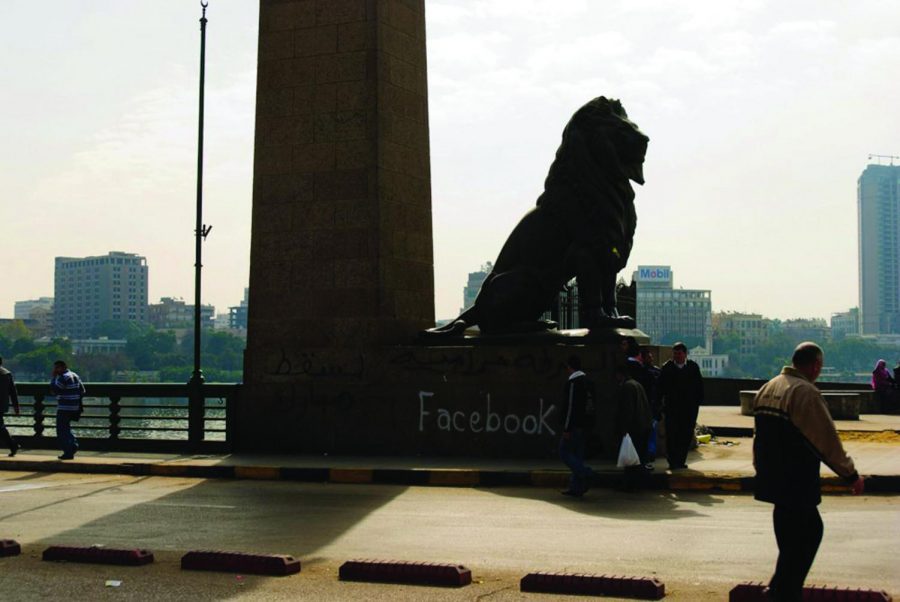Social media revolution flourishes amid conflict
February 24, 2011
As recent protests and demonstrations across the Middle East have shocked the world, a new social media revolution has risen amidst the conflict and offered an alternative method of communicating to trigger change within government.
Protestors have used Facebook, Twitter, YouTube, cell phones, Skype and other social media devices to organize rallies and maintain a constant flow of information with the outside world. In an effort to silence social media, government officials in Egypt, Tunisia, Libya and other Arab countries have also limited and denied Internet access to residents.
UNA student Cheri Kamel, an Egyptian-American who has family members that live near Tahrir Square, said the use of social media was vital in how she communicated with loved ones back home during the recent Egyptian crisis.
Kamel said her Egyptian father has been against the use of Facebook and other social media tools over the years because of how quickly and easily personal information can be spread online. Since he has seen the impact social media has had in Egypt recently, Kamel’s father is now open to what Facebook has to offer.
“If you don’t like something in government, you can say something about it through social media, but you still have to go out there and take action,” she said.
Allison Ray, a UNA junior who traveled to Tunisia where she studied the Arabic language for three months last summer, said social media tools like Facebook are an essential part of the daily interaction among Tunisians.
Across the Middle East, many protestors have used Facebook, Twitter, Skype and camera phones to organize demonstrations, convey constant updates on the political uprisings and broadcast live footage on the Internet.
Ray thinks the use of social media has also given a voice to those who were previously kept silent.
“As the political turmoil has come up recently, this is the first time that Facebook was used in the Arab world to initiate a social media revolution,” Ray said. “Just because you’re not an established journalist or part of an organization doesn’t mean you can’t have a voice. People came together, formed that solidarity and captured the spirit of social networks.”
As economic and political developments in the Middle East have occurred, many view social media and its capabilities as superior to traditional media, such as print newspapers, magazines, radio and TV networks.
Dr. Janet McMullen, associate professor of communications, believes the use of social media can have a positive or negative impact on an area depending on the motivations of the person using it.
“I think it is potentially an enormous tool for democracy, but that democracy depends on the citizenry that wants to participate, is capable of thinking, is willing to think and cares about the truth,” she said. “Social media in the hands of such people can bring a lot of positive results. In the hands of people who are only advocating a personal agenda and don’t care about truth, it can result in something negative.”











